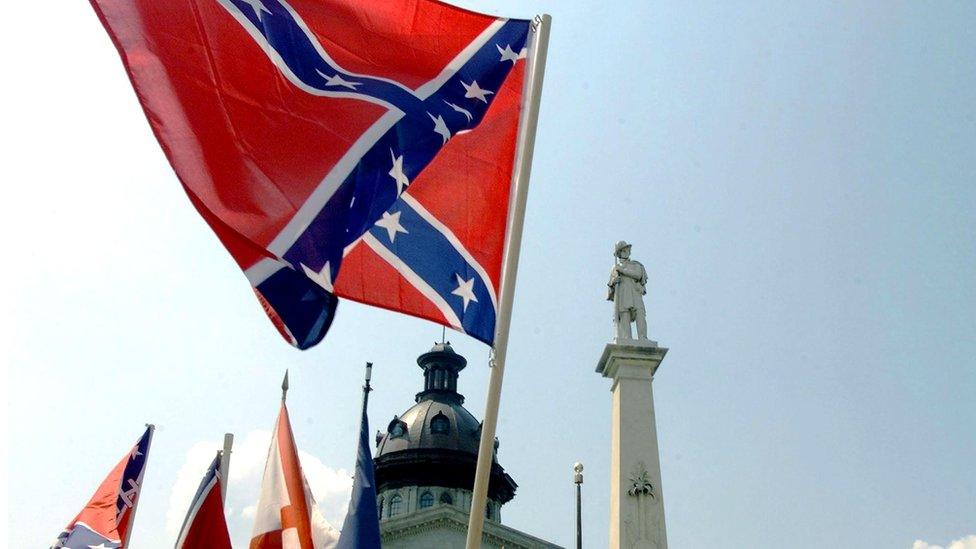Charlottesville Confederate statues protected, Virginia judge rules
- Published
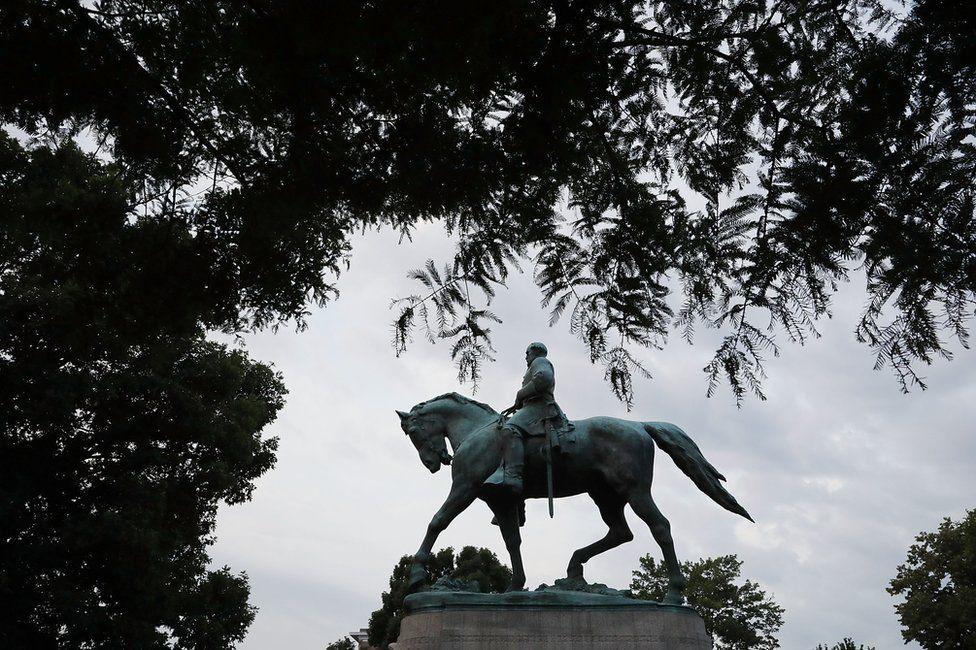
Debate around Confederate statues sparked deadly protests in Charlottesville in August 2017
A Virginia judge has ruled that Charlottesville's Confederate statues are war memorials protected by state law and cannot be removed.
Judge Richard Moore made his decision in a lawsuit filed against city council members who voted to remove a statue of Confederate General Robert E Lee.
The move by the council provoked vehement protest, culminating in a deadly white nationalist rally in 2017.
The rally stunned the US and escalated debate regarding Confederate statues.
Hundreds of statues of Lee, General Thomas "Stonewall" Jackson and other famous figures of the Confederacy - the southern states that revolted against the federal government - exist all throughout the US.
Some see the memorials, as well as Confederate flags, as markers of US history and southern culture.
What Trump said versus what I saw - by the BBC's Joel Gunter
But to others, they serve as an offensive reminder of the country's history of slavery and racial oppression. This view has been sharpened by violent acts of racism across the US in recent years.
In 2015, days after the 150th anniversary of the end of the Civil War, a white supremacist killed nine parishioners in an African-American church in South Carolina.
Since the massacre, more than 60 Confederate monuments or symbols have been removed or renamed, according to the Southern Poverty Law Center, an Alabama-based civil rights group.
The debate around Confederate symbols received renewed attention once again after the protests in Charlottesville, triggered by the city council's decision to remove a statue of Lee.
The resulting rally caused the deaths of a counter-protester and two state troopers died in a helicopter crash as they monitored the event.
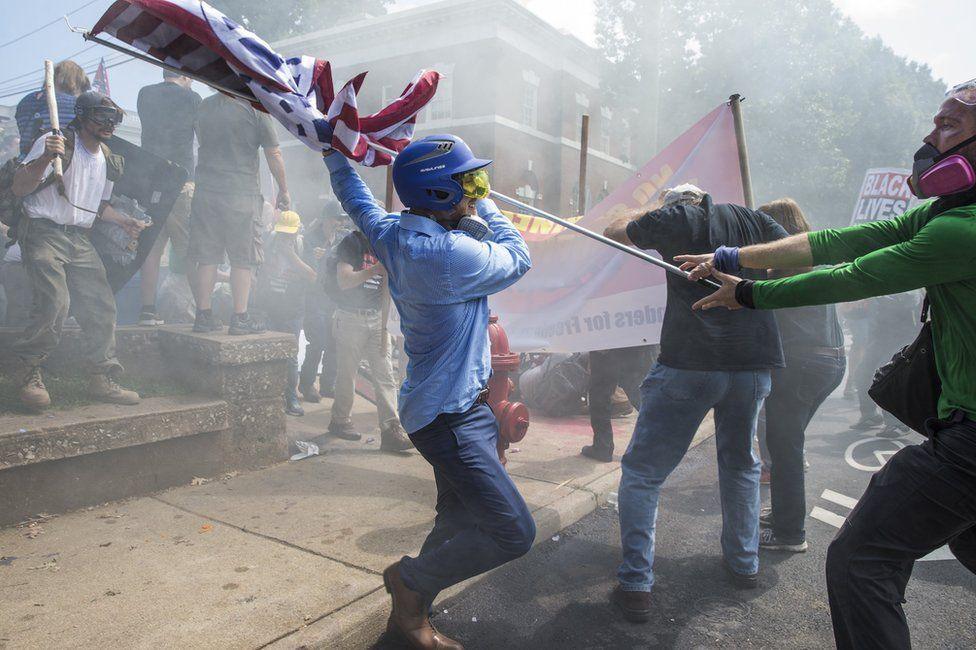
The clash over a Confederate statue in Charlottesville resulted in three deaths
In a letter dated 25 April, Judge Moore acknowledged arguments from the defendants claiming that the statues were not war memorials, but symbols of white dominance.
But in his ruling, he determined that the racism of either Lee and Jackson referenced by the defendants was not relevant to the case before him.
Instead, Judge Moore focused on the question of whether the statues are war memorials, which would afford them protection under state law.
Under this particular legislation, though local governments have the authority to build war memorials, only state governments have the power to remove them.
"These statues are monuments and memorials to Lee and Jackson", both war veterans, the judge wrote. "I find this conclusion inescapable."
As of August 2017, there were over 700 monuments to the Confederacy - most, but not all, located in the South.
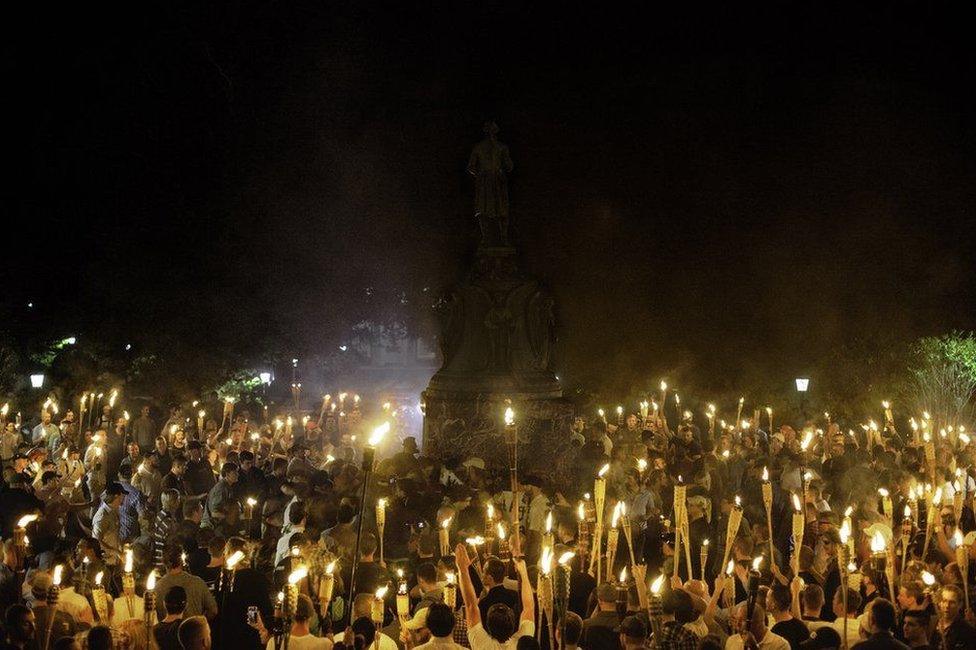
White nationalists gather at the base of the Thomas Jefferson statue on the UVA campus
- Published16 August 2017
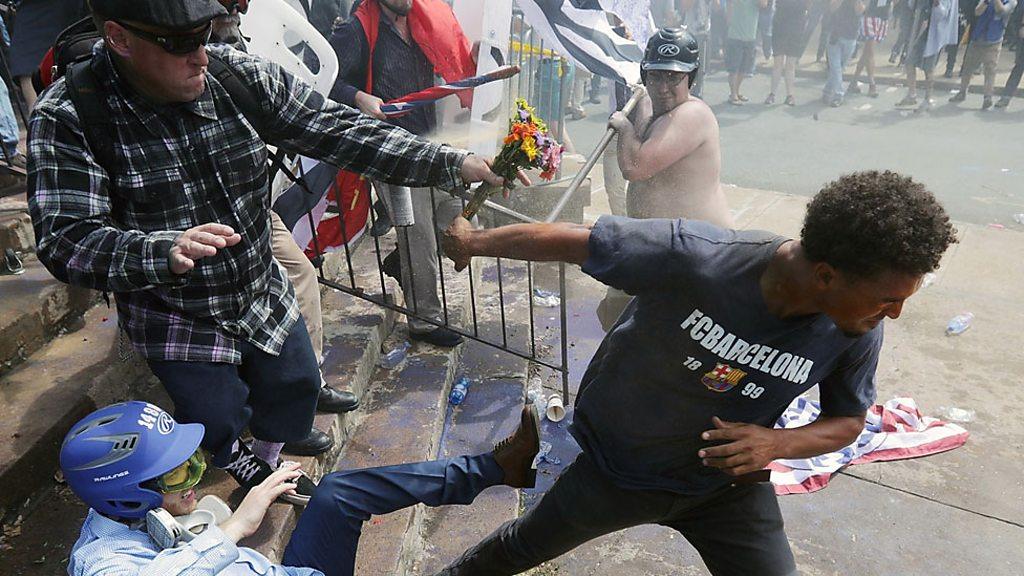
- Published21 June 2015
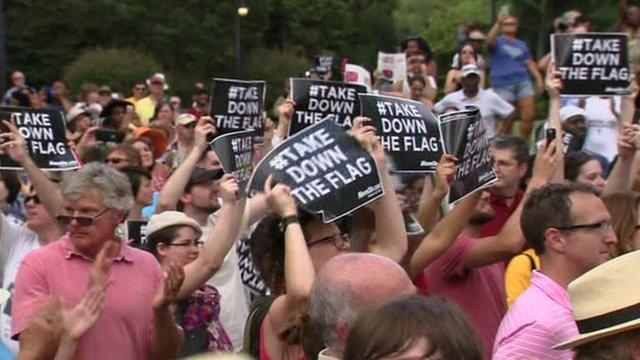
- Published9 August 2018
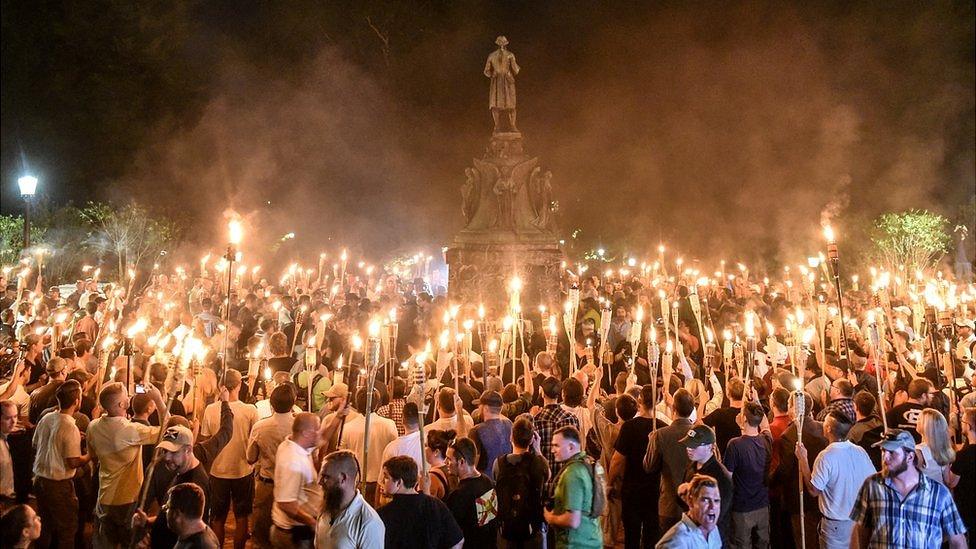
- Published5 January 2018
